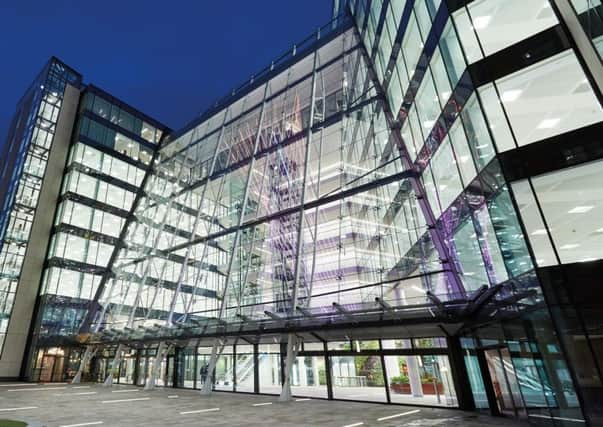City called the fastest growing in UK but rising inflation ahead


Accountancy giant Grant Thornton’s Vibrant Economy Index, which measures how towns and cities in England compare on a range of factors from prosperity to happiness, has revealed that the Leeds City Region demonstrates strong levels of economic prosperity, dynamism and opportunity.
The data which shows Leeds is producing wealth and jobs also reveals that Leeds has high levels of young people not in education, employment or training (NEETS).
Advertisement
Hide AdAdvertisement
Hide AdTo try and redress the balance, a long-lasting action plan for the future will be put into motion later this month. More than 300 leading figures from across the city, along with the region’s private, public and third sectors, have signed up to an event, set to take place at the city’s Royal Armouries.
Andy Wood, practice leader at Grant Thornton Yorkshire, which is leading the event, said: “We will meet with the aim of answering the question: How can we make Leeds a home where all sectors connect to create inclusive growth?
“Leeds is a dynamic and exciting place and one which is undergoing a period of rapid transformation.
“We’re home to a diverse range of organisations from the private, public and third sectors which all offer significant growth opportunities, however, our research has uncovered a vital need to find a way to ensure that everyone living and working here benefits from this success.”
Advertisement
Hide AdAdvertisement
Hide AdThe figures were revealed as it emerged inflation jumped to a two-and-a-half year high last month as the price of air fares and food rose more sharply than expected, with experts warning of climbing costs for British households in the months ahead.
The Office for National Statistics (ONS) said the Consumer Price Index (CPI) measure of inflation hit 1.6 per cent, up from 1.2 per cent in November, marking the highest level since July 2014.
The move surprised economists, who were pencilling in a 1.4 per cent rise.
Separate figures for the Producer Price Index (PPI) showed that factory gate prices rose 2.7 per cent year-on-year in December as manufacturers started to pass through higher input costs following the collapse of the pound.
Advertisement
Hide AdAdvertisement
Hide AdAlso on the increase were house prices which were £14,000 higher on average in November than a year earlier, according to official figures. The average UK property value has increased by 6.7 per cent over the last year to reach £218,000, a report released by the Office for National Statistics (ONS) shows.
Research yesterday showed too that poor families faced being left £2,800 a year worse off by 2020 due to living costs outstripping crucial welfare increases.
Prices are expected to have gone up by 35 per cent over the course of the decade but child benefit will have risen by just two per cent, according to End Child Poverty coalition research.
Struggling families also find it harder to make ends meet because they are being hit by a “poverty premium” that leaves them paying more for goods and services, its report found.
Advertisement
Hide AdAdvertisement
Hide Ad“Forecasts suggest that child poverty rates will rise significantly in coming years,” the report said.
“Low income families really are feeling the pinch - trapped between support being eroded by the cost of living rising much faster than benefit rates, and facing some of the highest prices on basic essentials.